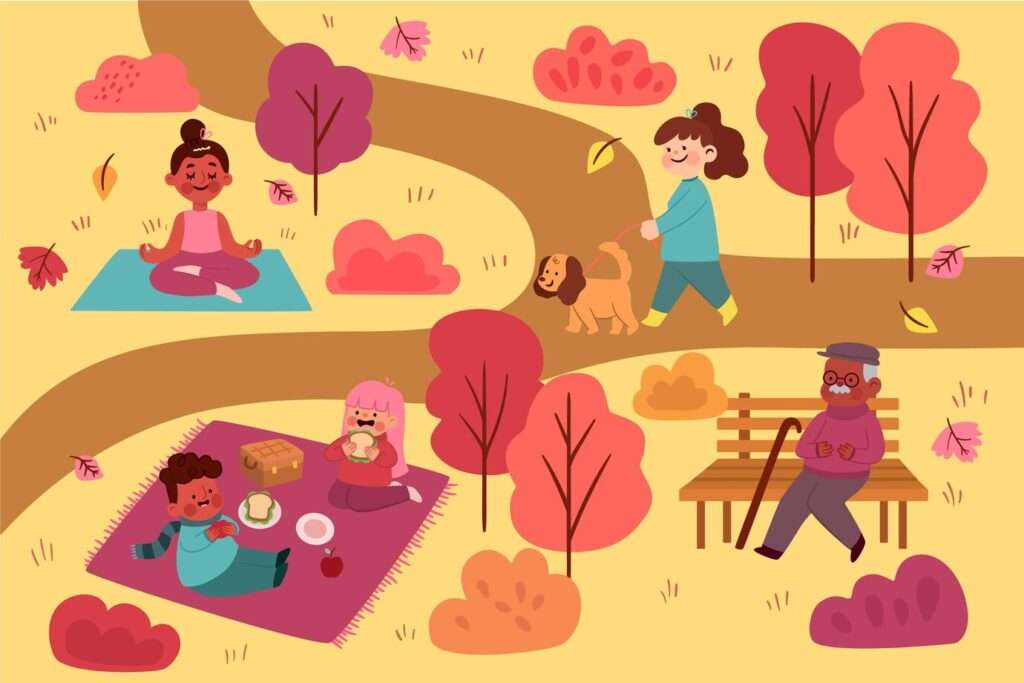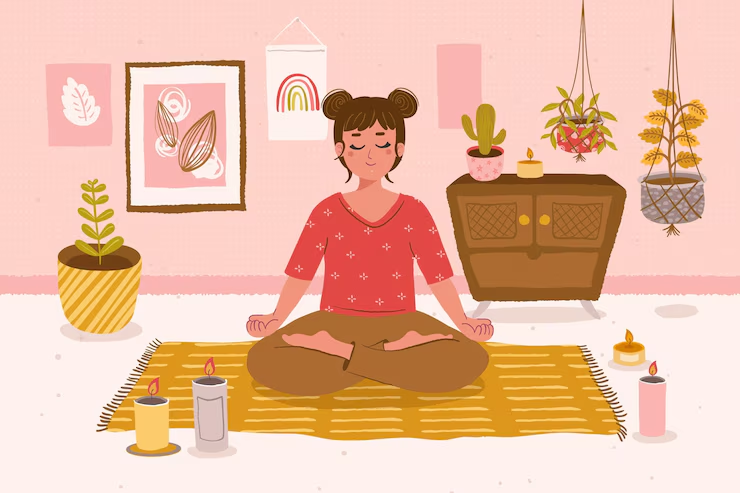Cover photo: freepik.com
Focus and mindfulness: Aylyak (Bulgarian noun)
Defining our priorities is at the core of being focused and mindful. How are we expected to live in the moment when the things we truly want are crowded out by the things we want to just get over with? While a busy life can be a suiting lifestyle for some, even they need days when their checklists get replaced by aylyak.
The Turkish roots of the expression suggest that the meaning has something to do with idleness. However, in reality, aylyak is a much more complex notion for Bulgarians: finding space and time. This life philosophy is especially characteristic of Plovdiv, the second largest city in Bulgaria. One might easily assume that a big city life is necessarily bustling, but the people of Plovdiv stand as a true counterexample.
The promoters of aylyak prioritize leading a slower and more harmonious life as opposed to the frenzied quality of our days. For them, aylyak is about taking dawdling walks, finding the time in their days to sip a cup of coffee or to get together with others. This lifestyle does not necessarily mean that these people are less productive — they might accomplish just as much in a day as anyone else, but with significantly less stress.
The people of Plovdiv show that it is our priorities that define the scope of our focus, and not necessarily the place or circumstances we live in. That is to say, you do not have to move to Plovdiv to try aylyak. This is the time and place to make creating placid moments within the day your new hobby.

Body and wellness: Flâneur (French noun)
The simple practice of going on a walk has been artfully mastered by many a nation. While the Dutch are quite keen on uitwaaien, which stands for strolling in the wind, Greeks prefer volta, that is, walking on the main street during sunset. The French flâneur originally referred to scoundrels who loitered about the streets of Paris. They were usually considered to be despicable artists, literary figures and scientists. However, over the course of years being a flâneur has become a trademark of Paris and it is no longer used pejoratively. Flâneurs and flâneuses refer to people who stroll around the metropolis without any particular aim, just observing people, and taking in the atmosphere of the city.
It seems that every nation has their preferred type of stroller, and it is up to you to decide which one you will be. The beauty of these specific expressions, all pertaining to the mere act of walking, is that they all draw the attention to walking as both a common and special practice in every corner of the world. The fact that there are a plethora of ways of expressing almost the same thing also points out that walking around has been important in people’s life, as it not only clears our minds, but contributes to our physical wellbeing and helps us unwind too. So be it in the countryside, metropolis, on the beach, or in the mountains, become your own stroller — start walking now.

Habits and rituals: Dominguear (Spanish noun)
Be it for religious reasons or any other, most cultures have at least one day of the week devoted to resting, recharging, and resetting. Typically it is on Sunday when we try to excuse ourselves from the hustle of daily life, and for this reason a lot of phrases that we use for the activities connected to our resting day are derived from the word for Sunday. In Spain and in some parts of Latin-America dominguear is such a phrase, literally meaning doing Sunday.
Naturally, dominguear could entail a variety of things based on what we like to spend our resting day with. For some, it is going to church, for others it is sleeping in. Some like to reflect on the previous week and prepare both themselves and their surroundings for the next one, others consciously avoid thinking about work, chores and such.
Whatever the case, whether you have a complete x-step slowing down routine or just like to go with the flow and do whatever you feel up to in the moment, it is highly advised to make doing Sundays a habit, and devote at least one day of the week to rest without any judgement. You are not lazy, you simply allow yourself to wind down once a week. There is no harm in that.
Resting and relaxing: Fredagsmys (Swedish noun)
It is finally Friday afternoon, what are your plans for tonight? No sleep, bus, club, another club, another club, plane, next place. Right?!
The expectation to get out and let loose every weekend is so pressing that oftentimes we feel like we have a part-time job to attend to. Irrespective of whether we feel up to it or not, we dress up and go to avoid FOMO knocking on our doors. But what if while we are out not to miss out on anything, we are actually missing out on a well-deserved chill Friday evening full of comfort and pampering?
If you ever felt embarrassed when you have not arranged a night out on Friday, you have a lot to learn from the practitioners of fredagsmys. This Swedish word is a compound resulting from putting together the words fredag (Friday) and mysigt (comfortable), meaning Friday comfort, which is a beloved practice in Sweden and a perfect excuse for cancelling those plans.
Fredasmys is not necessarily practiced alone, it simply refers to the idea of staying in for the night, maybe cooking something simple, and snuggling up while watching a movie – be it by yourself or with your loved ones. So maybe the next time you do not feel like going out but do not want to miss out on spending time with your friends either, propose to do fredagsmys! And just so you know: it is not rotting, it is relaxing.

Patience and balance: Voorpret (Dutch noun)
Most people do not like to wait. Most likely it is because they do not know how to do it properly. But the Dutch are here to teach us voorpret — finding joy in waiting for something to happen.
In a world where we are accustomed to get what we want in a blink of an eye, whether it is ordering food, downloading a song, or googling everything, it does seem strange to actually enjoy having to wait for something. But if we have to wait anyway, why not make the waiting fun too?
Whether it is a birthday, Christmas, a wedding, a casual weekend trip nearby, or a project that you have been up to, allow yourself to tap into the joy you expect these things to bring you even before you actually experience them. You can easily get into this mindset by putting the event in question into your calendar, planning ahead, creating vision boards and such. However, make sure that you do not overdo it, or else you may be put off once your expectations are not met.
Anticipatory pleasure teaches us that life is not necessarily about goals but rather the process. If you think about it, experiencing the actual thing that we have been waiting for usually lasts significantly less than the time it takes us to get there. So do not think of the waiting process as something you have to endure, but make it count and make it count now.





